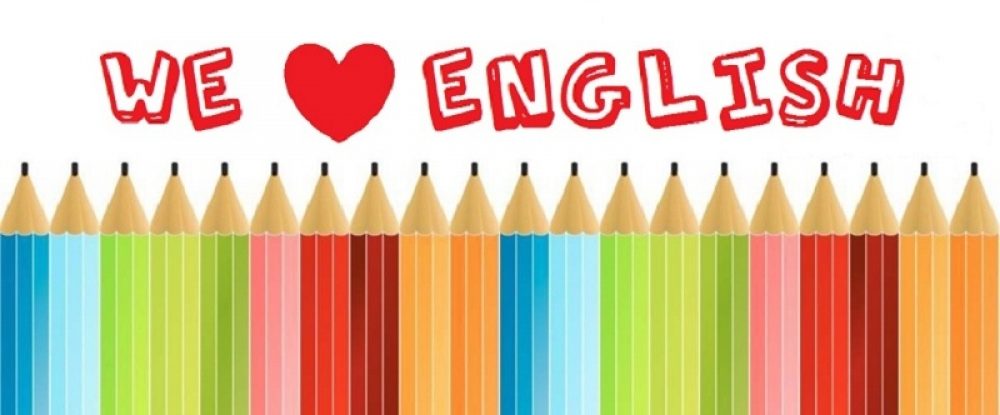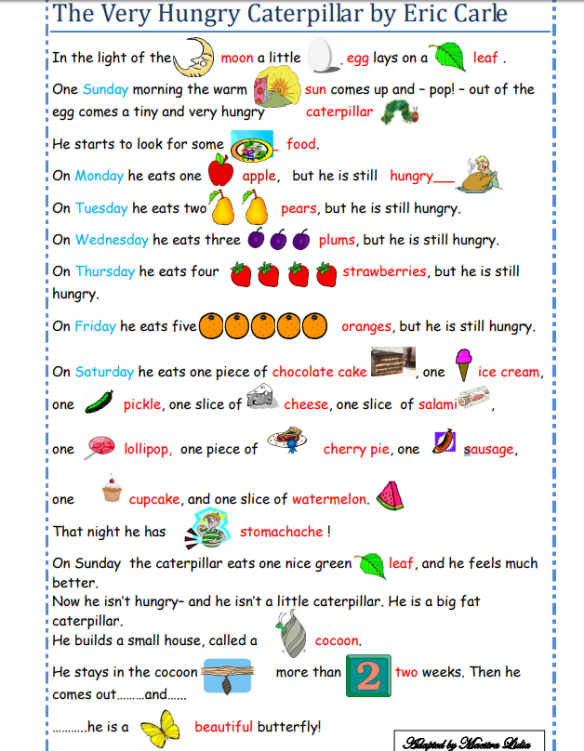Cambridge Dictionary
- Lexics
- Таблица неправильных глаголов английского языка
- A1-A2 grammar
- English grammar reference/ Parts of Speech
- Топ 100 фразовых глаголов
- The English Inn/ Phrasal Verbs
- New English File — Intermediate- Student’s Book.pdf
- New English File -Intermediate-Workbook.pdf
Различия между Future Simple, be going to, Present Continuous смотреть
читать Grammar Test 1 Test 2 Test 3
September the 6th, Tuesday

October the 23th, Thursday

was born- родился
grew up- вырос
make inventions- изобретать, делать изобретения
windmill to grind corn- мельница для помола кукурузы
sundial- солнечные часы
to get brilliant marks at school- получить блестящие отметки в школе
Great Plague- Великая чума
astronomy- астрономия
terrible disease- страшная болезнь
spread- распространять
to close down- закрыть
to return home- вернуться домой
to continue studying— продолжать учиться
instead of- вместо того
theory of gravity- теория гравитации
invisible force- невидимая сила
pull- push- тянуть-толкать
was fascinated by light- был очарован светом
reflecting telescope- отражающий телескоп
powerful- мощный
to make a discovery- сделать открытие
Three Laws of Motion- Законы движения
to have a bad temper- иметь плохой характер
to argue with other scientists- спорить с другими учеными-
to be buried- быть похороненным
September the 24th, Friday
Lesson 50.
Past Simple — простое прошедшее время
Упражнение 1. Поставьте глаголы в следующих предложениях в утвердительную, вопросительную и отрицательную формы Past Simple.
1. I (to do) morning exercises.
2. He (to work) at a factory.
3. She (to sleep) after dinner.
4. We (to work) part-time.
5. They (to drink) tea every day.
6. Mike (to be) a student.
7. Helen (to have) a car.
8. You (to be) a good friend.
9. You (to be) good friends.
10. It (to be) difficult to remember everything.
Упражнение 2. Раскройте скобки, употребляя глаголы в Past Simple.
1. Alice (to have) a sister.
2. Her sister’s name (to be) Ann.
3. Ann (to be) a student.
4. She (to get) up at seven o’clock.
5. She (to go) to the institute in the morning.
6. Jane (to be) fond of sports.
7. She (to do) her morning exercises every day.
8. For breakfast she (to have) two eggs, a sandwich and a cup of tea.
9. After breakfast she (to go) to the institute.
10. Sometimes she (to take) a bus.
11. It (to take) her an hour and a half to do her homework.
12. She (to speak) English well.
13. Her friends usually (to call) her at about 8 o’clock.
14. Ann (to take) a shower before going to bed.
15. She (to go) to bed at 11 p. m.
Упражнение 3. Раскройте скобки, употребляя глаголы в Past Simple.
1. My working day (to begin) at six o’clock.
2. I (to get) up, (to switch) on the TV and (to brush) my teeth.
3. It (to take) me about twenty minutes.
4. I (to have) breakfast at seven o’clock.
5. I (to leave) home at half past seven.
6. I (to take) a bus to the institute.
7. It usually (to take) me about fifteen minutes to get there.
8. Classes (to begin) at eight.
9. We usually (to have) four classes a day.
10. I (to have) lunch at about 2 o’clock.
Упражнение 4. Используйте слова в скобках для образования предложений в Past Simple. Обратите внимание, в какой форме должно стоять предложение (утвердительной, вопросительной или отрицательной).
1) They _____ football at the institute. (to play)
2) She _____ emails. (not / to write)
3) ____ you____ English? (to speak)
4) My mother ____ fish. (not / to like)
5) ____ Ann ____ any friends? (to have)
6) His brother _____ in an office. (to work)
7) She ___ very fast. (cannot / to read)
8) ____ they ____ the flowers every 3 days? (to water)
9) His wife _____ a motorbike. (not / to ride)
10) ____ Elizabeth_____ coffee? (to drink)
Упражнение 5. Вставьте глагол “to be” в требуемой форме Past Simple.
1. I … a student.
2. My father … not a shop-assistant, he … a scientist.
3. … your aunt a nurse? — Yes, she … .
4. … they at home? — No, they … not. They … at school.
5. … you an engineer? — Yes, I….
6. … your friend a photographer? No, she … not a photographer, she … a student.
7. … your brothers at school? — Yes, they … .
8. … this her watch? — Yes, it … .
9. Max … an office-worker.
10. We … late, sorry!
Упражнение 6. Переведите на английский язык:
1. Она была занята. (to be busy)
2. Я не был занят.
3. Вы были заняты?
4. Они были дома? (to be at home)
5. Его не было дома.
6. Я не знал.
7. Они знали?
8. Она не знала.
9. Кто знал?
10. Никто не знал.
11. Он читал английские книги? (to read English books)
12. Они никогда не читали. (never / to read)
13. У неё была квартира? (to have a flat)
14. У него ничего не было.
15. Кто это был?

mop- mopped
stop- stopped
hop- hopped
rob- robbed
chat-chatted
stop- stopped
prefer- preferred
travel- travelled
Lesson 45. May the 16th, Sunday
Our Earth is so beautiful. There, are a lot of blue rivers and lakes on the Earth. Its oceans are full of wonders. There are high mountains covered with snow and wonderful fields and forests full of different plants and animals. The sun shines high up in the blue sky. At night we can see the moon and millions of stars. One season comes after another and brings changes in weather and nature. There are so many wonderful places to visit and interesting things to see. Nature gives people its riches to live and enjoy.
We can’t live without fresh air, clean water, sunshine and a lot of things which we take from the nature. That’s why we must take care of it. We must keep our rivers and lakes, forests and towns clean. We must take care of each plant and each animal. We must plant flowers — not pick them up, feed birds and animals in winter — not kill them. Then we’ll be happy to live on the most beautiful planet in the Universe.
ПЕРЕВОД
Наша Земля такая красивая. На Земле много голубых рек и озер. Его океаны полны чудес. Здесь высокие горы, покрытые снегом, и чудесные поля и леса, полные различных растений и животных. Солнце светит высоко в голубом небе. Ночью мы видим луну и миллионы звезд. Один сезон сменяет другой и приносит с собой перемены в погоде и природе. Здесь так много замечательных мест, которые стоит посетить и что посмотреть. Природа дает людям свои богатства, чтобы жить и наслаждаться.
Мы не можем жить без свежего воздуха, чистой воды, солнца и всего того, что мы берем от природы. Вот почему мы должны об этом позаботиться. Мы должны содержать в чистоте наши реки и озера, леса и города. Мы должны заботиться о каждом растении и каждом животном. Мы должны сажать цветы, а не собирать их, зимой кормить птиц и животных, а не убивать их. Тогда мы будем счастливы жить на самой красивой планете во Вселенной.

Lesson 44. May the 3rd, Monday
A dog’s Life
- Save money- экономить деньги
- Save somebody- спасать кого-то
- SOS— Save Our Souls
- Neighbour –сосед
- Hit- ударить
- Though- хотя
- Especially- особенно
- Luckily- к счастью
- Good luck to you! Удачи тебе
- Collar- ошейник
- For silly reasons- по глупым причинам
- Shout at- кричать
- Don’t shout at me- не кричи на меня
- Madhouse- дурдом
- You make me mad- ты сводишь меня с ума
- I am mad about you- я без ума от тебя
- Safe pavement- безопасный тротуар
- Change my mind- передумать
- Seat belts- ремень безопасности
- Foget-me-not- незабудка
- Remind- напомнить
- Careful- осторожный
- On the corner of the street- На углу улицы
LESSON 43. MAY the 1st, saturDAY

LESSON 42. APRIL THE 27th, TueSDAY
At odd hours — на досуге, время от времени
Ahead of time — раньше времени
At a wrong time — не вовремя
Time flies — время летит
Time drags — время тянется
No time to lose — время не ждет (нужно поторопиться)
Time goes by / passes — время проходит
Устойчивые выражения со словом time
doesn’t take a lot of time (не займет много времени).
time is money (время — деньги)
all in good time (всему свое время)
time heals all wounds (время все лечит)
Not the time / hardly the time — не время
It’s not the time to ask my father about a favour – Сейчас не время просить моего отца об одолжении
There’s no time like the present — сейчас самое подходящее время (когда речь идет о чем-то, что нужно сделать прямо сейчас)
When do you want to call him? I think, there’s no time like the present –— Когда ты думаешь позвонить ему? Я думаю, сейчас самое подходящее время.
To have all the time in the world — иметь много времени (дословно: иметь все время в мире)
We don’t have to rush, we have all the time in the world — Нам не нужно спешить, у нас масса времени
To have no / little time to spare — нет / мало свободного времени
Kate had no time to spare for cooking. – У Кейт не было времени на готовку.
With time to spare — раньше, чем ожидалось
We will arrive in Tokyo with time to spare — Мы прибудем в Токио раньше, чем ожидалось.
Have time on your hands — иметь много свободного времени (не знать, чем себя занять)
Now that he started to live alone, he has too much time on his hands — Теперь, когда он живет один, он не знает, чем себя занять
Half the time — почти всегда (дословно: половину времени), употребляется обычно в негативном ключе, как упрек, поэтому при отрицании можно перевести как “почти никогда”.
Half the time you don’t even notice what I’m wearing — Ты почти никогда не замечаешь даже во что я одета
At all times — всегда (обычно употребляется в официальной речи или объявлениях)
Children must be supervised by adults at all times while in the museum — Находясь в музее, дети должны находится под постоянным присмотром взрослых
To take one’s time — не спешить
Here is the menu, sir. I’ll return in ten minutes, so, take your time. — Вот меню, сэр. Я вернусь через десять минут, так что, не спешите.
(Right / bang / dead) on time — вовремя
The taxi arrived right on time — Такси приехало как раз вовремя
Ahead of time — раньше, чем было запланировано
The plane arrived 40 minutes ahead of time — Самолет прибыл на 40 минут раньше
Behind time — позже, чем было запланировано
The plane arrived 20 minutes behind time — Самолет прибыл на 20 минут позже
In no time / in next to no time — очень скоро, быстро
Don’t worry, I’ll be back in next to no time — Не волнуйся, я мигом (Не волнуйся, я скоро вернусь)
To make good time — быстро добраться куда-либо (дословно: сделали хорошее время)
LESSON 41. APRIL THE 22nd, Thursday
Must or mustn’t worksheets and online exercises ESL

Was or were worksheets and online exercises ESL

WAS / WERE
ex. 114, 117(переписать)
Случаи использования глаголов в значении «быть» очень похожи с предложениями в русском языке. Для was / were употребление характерно при описании местонахождения, качеств, рода деятельности и других случаев:
The key was in the car – Ключ был в машине
George was tall and thin – Джордж был высокий и худой
I was a dancer – Я был танцором
Her name was Margaret – Ее звали Маргарет
В отрицании с частицей not глаголы могут принимать сокращенную форму wasn’t, weren’t. Частица not в таком случае примыкает к глаголу и теряет свой гласный «о»:
The key wasn’t in the car – Ключ не был в машине
They weren’t at home yesterday – Вчера они не были дома
LESSON 40. APRIL THE 20th, TueSDAY

Measuring is the size of something.
Measuring is very important when we mean to buy clothes.
That’s why it’s important to know your measurements to buy the right size.
What do you need to measure to buy a shirt?
To measure your torso
Walk and sit straight
Trousers (B.E)=pants(A.E)
How to measure your waist correctly?
I am still growing. My height is…
From your hips to your ankles
Your span equals your height.
Your span is from one finger tip to the other finger tip.
It’s difficult to measure yourself.
We measure each other and it’s fun.
How to calculate perimeter of rectangle
Calculating the Area and Perimeter

Find the area and perimeter of a rectangle with sides 4 cm by 9 cm.
LESSON 39. APRIL THE 14TH, WEDNESDAY
Where the Names of the Months came from (text in English ) Откуда произошли названия месяцев

LOVE/ HATE/ LIKE/ DON’T LIKE…DOING
LESSON 38. APRIL THE 11TH, SUNDAY

- Athens is the capital of…
- Whenever I go he … me.
- When I was a child my mommy used to read a …for me.
- I can’t drive to work. The weather is…
- I like playing …on my friends. After some minutes I will say: It is a…!”
- When three little pigs see the wolf they start …
- In my …I don’t see witches and cannibals …
- You should …what to do.
(Greece, foggy, joke, follows, any more, decide, to run away, fairy tale, tricks, dreams)
Revision exercises.


LESSON 37. APRIL THE 6TH, TUESDAY
A Midsummer Night’s Dream
- Greece- Греция
- Run away- убежать
- Follow- следить
- Fairy king/ queen/ princess- сказочный король
- Fairy tale- сказка
- To play a trick on somebody- подшутить над кем-то
- It is a joke! Это шутка!
- I hope- надеюсь
- To fall in love with someone- влюбиться в кого-то
- I don’t like the way you are looking at me.
- Any more- больше
- Naughty- непослушный, шалун
- To fight over Helena- бороться за Элену
- Fog- туман
- Decide- решить
- Perhaps- наверняка, возможно
- Dream- сон
LESSON 36. MARCH THE 28TH, SUNDAY

TEST WORK
Write all the sentences in negative form.
- He speaks three languages.
- She drinks coffee every morning.
- My dog hates my cat.
- A mechanic fixes cars.
- She watches soap operas every afternoon.
- He kisses his wife before he goes to work.
- Isabel studies every night.
- The baby cries all the time.
- He denies all responsibility.



LESSON 35. MARCH THE 24TH, WEDNESDAY

LESSON 34. MARCH THE 18TH, ThursDAY
Revision exercises
Some vs Any, Present Simple
LESSON 33. MARCH THE 11TH, ThursDAY
Revision exercises from Grammar
LESSON 32. MARCH THE 10th, WEDNESDAY


Interactive worksheet some/any
Wet- мокрый
ox- oxen
to give- дать
pond- lake- river- ocean пруд- озеро- река- океан
He runs to Aunt Mammy-Bammy.
He doesn’t run to Aunt Mammy-Bammy.
Does he runto Aunt Mammy-Bammy?
Are you tired?
Life- жизнь
She shakes hands with her teachers.
She doesn’t shake ….
LESSON 31. march THE 2nd, TuesDAY
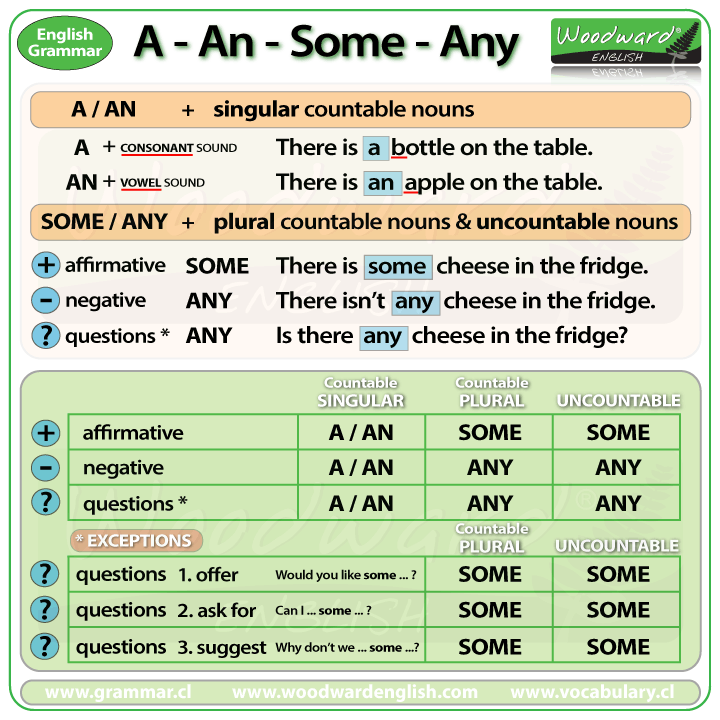
There is some tea in the cup. /+/
Is there any tea in the cup? /?/
There isn’t any tea…/-/
I don’t like any fruit. Я ничего не люблю. I like no fruit.
- some tea- немного чая some + uncountable noun /U/
- Some pupils- несколько учеников
- Some guy wants to meet you. Какой-то парень…
- Some of my friends/ classmates/ neighbours speak French. Некоторые из моих друзей…
?????????????
- ! Would you like some salad? Не хотели бы немного салата?
- ! Can I have some hot coffee, please? Можно мне горячего кофе, пожалуйста?
Some(+)
Any(?,-)
Vereshchagina 2 Student’s Book/ Part 2 (2008) part 3, part 4
Revision
36 Вводных слов и выражений
1 . Frankly speaking – Откровенно говоря
2 . To cut it short – Короче говоря
3 . So to speak – Так сказать
4 . Meanwhile – Тем временем, пока
5 . By the way – Кстати, между прочим
6 . It goes without saying – Само собой разумеется
7 . As far as I know – Насколько мне известно
8 . Indeed – Действительно
9 . In other words – Другими словами
10 . However – Однако
11 . So well – Итак
12 . Besides – Кроме того
13 . Also – Также
14 . Сertainly – Конечно
15 . Anyway – В любом случае
16 . Always at all – Вообще
17 . Therefore – По этой причине
18 . Though – Хотя
19 . Although – Хотя
20 . Meantime – Тем временем
21 . Nevertheless – Однако, тем не менее, все-таки
22 . Perhaps — Возможно
23 . Probably — Возможно
24 . To put it mildly – Мягко говоря
25 . At all – Вообще
26 . In any case – В любом случае
27 . To tell the truth – Честно говоря
28 . So – Итак
29 . Moreover – Кроме того
30 . Well – Хорошо
31 . Strictly speaking – Строго говоря
32 . To sum it up – Подытоживая
33 . Of course – Конечно
34 . Certainly – Безусловно
35 . Probably – Возможно
36 . To begin with – Начнем с
LESSON 30. FEBRUARY THE 24th, WEDNESDAY
Тест на Present Simple и Present Continuous.
Упражнение 1. Выберите из скобок нужную форму. Объясните сделанный выбор.
1. It sometimes (snows/is snowing) here in April. 2. It (snows/is snowing) now. 3. Every morning mother (cooks/is cooking) breakfast for us. 4. It is 8 o’clock now. Mother (cooks/ is cooking) breakfast. 5. Every day father (leaves/is leaving) the house at half past eight. 6. Now it is half past eight. Father (leaves/is leaving) the house. 7. We often (watch/are watching) TV. 8. Now we (sit/ are sitting) in armchairs and (watch/are watching) TV. 9. Sometimes Mike (does/is doing) his lessons in the evening. 10. Look at Mike. He (does/is doing) his lessons. 11. It often (rains/is raining) in September. 12. It (rains/is raining) now. 13. Every day the family (has/is having) tea at 5 o’clock. 14. It is 5 o’clock now. The family (has/is having) tea.
Упражнение 2. Поставьте глаголы в скобках в нужном времени и в нужной форме.
1. Не often (go) to the cinema. 2. They (watch) TV at the moment. 3. She (write) letters to her mother every week. 4. Nina usually (drive) to work. 5. Father (sit) on the sofa now. 6. Listen. The telephone (ring). 7. Tim (study) a new language every year. 8. We always (spend) the summer in York. 9. In summer we usually (go) to the seaside. 10. Look at Tom. He (ride) a horse. 11. He often (watch) birds in autumn. 12. Don’t ask me now. I (write) an exercise. 13. She usually (watch) television in the evening. 14. I (play) the piano every day.
Упражнение 3. Заполните пропуски, используя don’t, doesn’t, isn’t, aren’t или am not.
1. We … watching a television programme now. 2. We … watch television every day. 3. It… raining very hard at the moment. 4. I … hear you well. 5. It… rain very much in summer. 6. Mr Johnson … eating his lunch now. 7. Mr Johnson … always eat at that cafe. 8. I… see any students in that room. 9. They … like milk for lunch. 10. He … have money for a new car.
Упражнение 4. Начните вопросы с do, does, is, are или am.
1. … you learn new words in each lesson?2. … you learning the new words right now?3. … she usually sit at the third desk?4. … she sitting at the third desk today?5. … you read many books every year?6. … you reading an interesting book now?
Упражнение 5. Найдите ошибки и исправьте их.
1.We not going to school today. 2. What you doing after school? 3. At the moment Peter is work in Russia. 4. Does he got a new car? 5. He never wear a hat. 6. He don’t like black coffee. 7. We are have a good time. 8. What you doing now? 9. It rains at the moment. 10. How you like the game?
ВЫБЕРИТЕ наиболее подходящий вариант:
| 1 | All children ___ chocolate. | ||||
| A | are adoring | B | are adore | C | adore |
| 2 | We ___ a picnic at the moment. | ||||
| A | are have | B | are having | C | has |
| 3 | How ___ to work? | ||||
| A | does you usually get | B | are you usually getting | C | do you usually get |
| 4 | Jenny always ___ nice expensive clothes. | ||||
| A | wears | B | is wearing | C | wear |
| 5 | Betty can’t answer the phone. She ___. | ||||
| A | sleeps | B | is sleep | C | is sleeping |
| 6 | These jeans ___ much. | ||||
| A | doesn’t cost | B | don’t cost | C | are not costing |
| 7 | His eyes are closed. He ___ at you. | ||||
| A | isn’t look | B | isn’t looking | C | doesn’t look |
| 8 | Mark and Greg always ___ home before 9 p.m. | ||||
| A | come | B | comes | C | are coming |
| 9 | ___ your boyfriend often invite you to the cinema? | ||||
| A | Do | B | Is | C | Does |
| 10 | My parents ___ the house right now. | ||||
| A | is cleaning | B | are cleaning | C | clean |
| 11 | My mother never ___ me up in the morning. | ||||
| A | doesn’t wake | B | is making | C | wakes |
| 12 | My father is in Greece now. He ___ at a very nice hotel. | ||||
| A | stays | B | is staying | C | stay |
| 13 | Ann ___ her friends early in the morning. | ||||
| A | doesn’t usually meet | B | don’t usually meet | C | isn’t usually meeting |
| 14 | All the members of our family often ___ for evening tea. | ||||
| A | gather | B | are gathering | C | gathers |
| 15 | I ___ dinner because I’m really hungry. | ||||
| A | cook | B | am cooking | C | is cooking |
| 16 | What ___ on Saturdays? | ||||
| A | are you doing | B | does you do | C | do you do |
| 17 | I’m sorry. I ___ this word. | ||||
| A | doesn’t remember | B | am not remembering | C | don’t remember |
| 18 | Don’t go out! It ___ hard at the moment. | ||||
| A | is snowing | B | snows | C | snow |
| 19 | Brian always ___ his friend in the evening. | ||||
| A | is phoning | B | phones | C | phone |
| 20 | Why ___? I’ve lost my keys. | ||||
| A | do you cry | B | does you cry | C | are you crying |
| 21 | We ___ letters to our relatives every month. | ||||
| A | are sending | B | send | C | sends |
| 22 | Mother can’t fall asleep because her children ___ too much noise. | ||||
| A | are making | B | makes | C | make |
| 23 | When ___? | ||||
| A | do he normally get up | B | is he normally getting up | C | does he normally get up |
| 24 | Sam and Tim ___ tennis very often. | ||||
| A | are not playing | B | doesn’t play | C | don’t play |
| 25 | Look at that man! ___ him? | ||||
| A | Does you know | B | Do you know | C | Are you knowing |
LESSON 29. FEBRUARY THE 21ST, SUNDAY
1ый- first /1st/
2ой- second /2nd/
3ий- third /3rd/
4ый…fourth /4th/5th 6th
Kind— добрый- cruel— жестокий
Agree /соглашаться/— disagree /не соглашаться/


Lesson 28. February the 17th, Wednesday

переписать
ROUND-UP 1 pg. 73, ex-es 119,120 in written form
Vereshchagina 2 Student’s Book/ Part 2 (2008) pg. 46-51 Why Hares Have Got Big Ears /part 1,2/
Vereshchagina 2 Student’s Book/ Part 2 (2008) pg.46-51 Why Hares Have Got Long Ears (Part1,2)

LESSON 27. February the 14th, Sunday

ROUND-UP 1 ex-es 113, 114,115,116,117
Prepositions of TimeLearnEnglishKids
выучи Learn with flashcards закрепи Playground Vocabulary Game

LESSON 26. The 12th of February, Thursday
Prepositions of Place посмотри
ROUND-UP 1 ex. 110, 112 письменно

- at- на, в, у, при, около, за
- into- в, на, к
- in- в, на, по, во, при
- behind- за, позади, сзади, после
- under- под, по, при
- on- на, по, о, в
- near- около, рядом, по близости, возле
- in front of- перед, напротив, спереди
- over- над, за, по, свыше
LESSON 25. The 7th of February, Sunday
ROUND-UP 1 ex. 106, 107, 108 in written form
Раскройте скобки, употребляя глаголы в форме Present Simple или Present Continuous.
1. Her father (not to watch) TV at the moment. He (to sleep) because he (to be) tired.
2. Where your uncle (to work)? – He (to work) at school.
3. Your friend (to do) his homework now?
4. When you usually (to come) home from school? – I (to come) at four o’clock.
5. My sister (not to play) the piano now. She (to play) the piano in the evening.
6. You (to read) a magazine and (to think) about your holiday at the moment?
7. I (to sit) in the waiting room at the dentist’s now.
8. When you (to listen) to the news on the radio?
9. You (to play) chess now?
10. My father (not to work) at the shop.
11. Look at the sky: the clouds (to move) slowly, the sun (to appear) from behind the clouds, it (to get) warmer.
12. I (not to drink) coffee in the evening. I (to drink) coffee in the morning.
13. What your friend (to do) now? – She (to wash) the dishes.
14. Your grandfather (to work) at this factory?
Wh- questions worksheets and online exercises
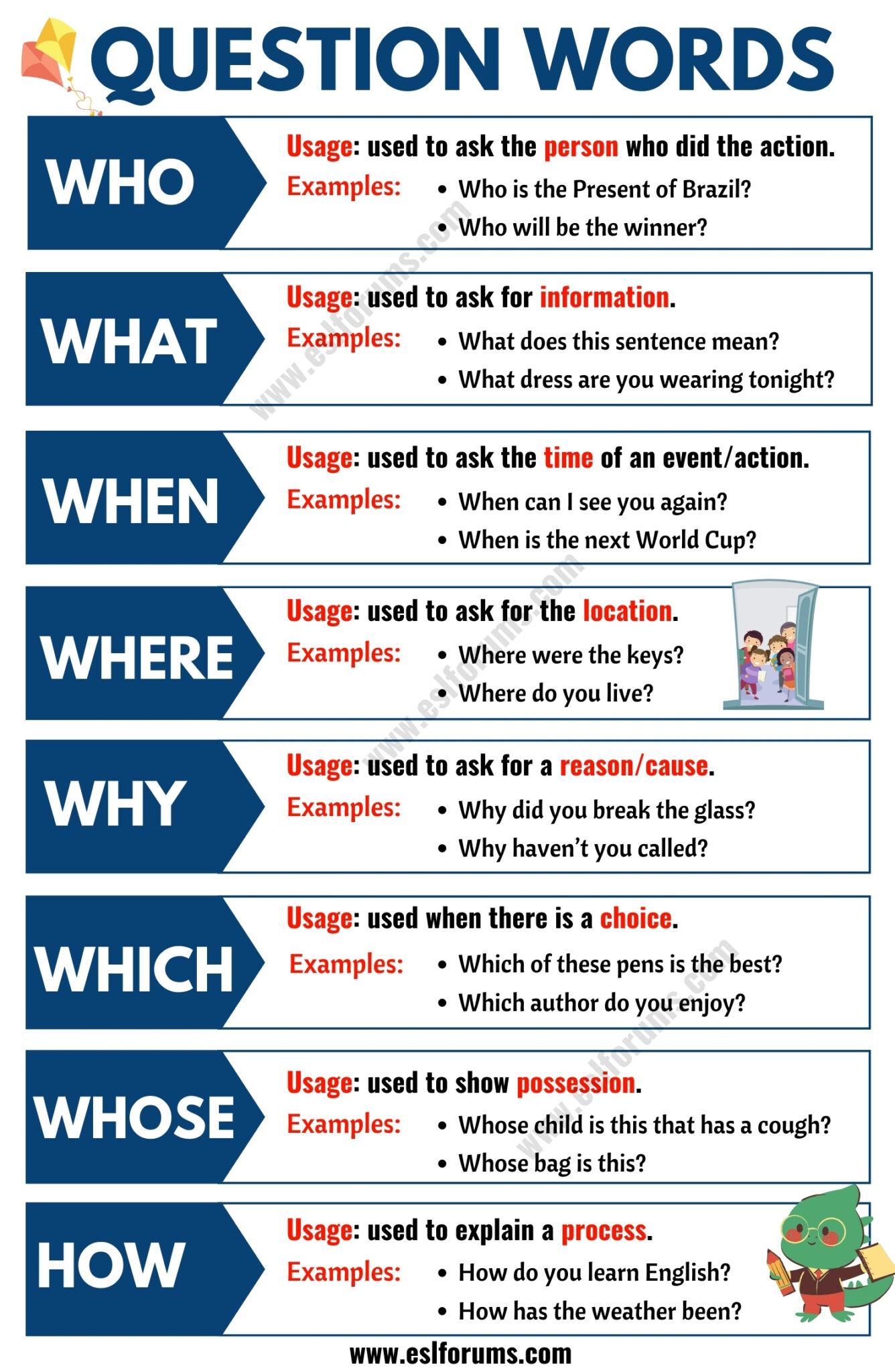


Поставить глаголы в нужной форме. Написать предложения в вопросит. и отрицат. форм.
- She usually plays outdoor games on Sundays.
- Does she usually play…..?
- She doesn’t usually play…
- Keep silence! We are watching an interesting movie.
- Are we watching an interesting movie.
- We are not watching an interesting movie.
- I sometimes eat vegetable salad and drink pineapple juice.
- Do I sometimes eat vegetable salad and drink pineapple juice?
- I don’t sometimes eat vegetable salad and drink pineapple juice.
- Tom never puts on sunglasses.
- Does Tom ever put on sunglasses?
- Look! My nephew is climbing the mountain.
- Is my nephew climbing…?
- My nephew isn’t climbing the mountain.
- My dad rarely helps my elder sister with her homework.
- Does my dad rarely help my elder sister with her homework?
- My dad doesn’t rarely help my elder sister with her homework.
Ex. I often drink coffee in the morning./affirmative/
Do I often drink coffee in the morning?/interrogative)
I don’t often drink coffee in the morning./negative/
LESSON 24.
Repetiotion: Present Simple and Present Continuous


LESSON 23. THE 31st OF JANUARY, SUNDAY

ex-es 93, 94, 95, 96, 97, 98, 104
LESSON 22. THE 27th OF JANUARY, WEDNESDAY
ROUND-UP 1 ex-es 80-90
Present Simple VS Present Continuous
usually- today
Kostya usually reads science fiction (научная фантастика) but today he is reading fables (басни).
LESSON 21. THE 24th OF JANUARY, SUNDAY
Упражнение 1. Раскройте скобки, употребляя глаголы в форме Present Simple или Present Continuous.
1. He (to work) in the city centre.
2. I (to write) an essay now.
3. You (to go) to school on Sundays?
4. We (not to dance) every day.
5. They (to play) in the hall now?
6. Where he (to live)? – He (to live) in a village.
7. He (to sleep) now?
8. They (to read) many books.
9. The children (to eat) cakes now.
10. He (to help) his mother every day.
11. You (to play) the piano well?
12. Look! Michael (to dance) now.
Упражнение 2. Раскройте скобки, употребляя глаголы в форме Present Simple или Present Continuous.
1. Her father (not to watch) TV at the moment. He (to sleep) because he (to be) tired.
2. Where your uncle (to work)? – He (to work) at school.
3. Your friend (to do) his homework now?
4. When you usually (to come) home from school? – I (to come) at four o’clock.
5. My sister (not to play) the piano now. She (to play) the piano in the evening.
6. You (to read) a magazine and (to think) about your holiday at the moment?
7. I (to sit) in the waiting room at the dentist’s now.
8. When you (to listen) to the news on the radio?
9. You (to play) chess now?
10. My father (not to work) at the shop.
11. Look at the sky: the clouds (to move) slowly, the sun (to appear) from behind the clouds, it (to get) warmer.
12. I (not to drink) coffee in the evening. I (to drink) coffee in the morning.
13. What your friend (to do) now? – She (to wash) the dishes.
14. Your grandfather (to work) at this factory?

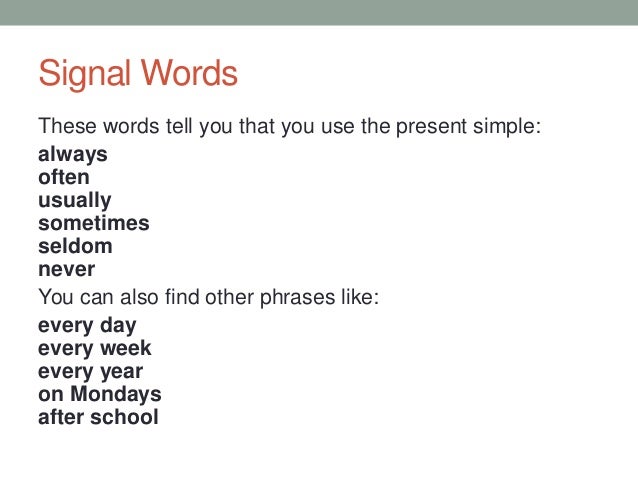
Lesson 20. The 21st of January, Thursday

ROUND-UP 1 p. 52, ex. 81, 82
Present Simple worksheets and online exercises
English as a Second Language (ESL)
Lesson 19. The 16th of January, Saturday
- Christmas Eve— канун рождества /December 24/
- To get ready for— готовиться
- I am getting ready for the exam now
- Put on= wear= dress
- Lots of presents= many gifts
- Leave- оставлять
- Minced meat- фарш
- Reindeer- Santa’s Rudolf
- /into the/ Air- воздух
- Catch— хватать
- North Pole- Северный полюс- South Pole
- Busy- занят
- Have lots of fun- наслаждаться
- See you- увидимся
- Again- вновь, снова
- Next year- следующий год
- White beard
Outdoor games
- Leapfrog-чехарда
- Hopscotch-клсассики
- Tag—
- Hide and seek— прятки
Table games
- Chess
- Checkers— шашки
- Backgammon— нарды

Sona Sargsyan
Santa’s little helper watch here

Watch CHICKEN LITTLE

Chicken Little likes to walk in the woods. She likes to look at the trees. She likes to smell the flowers. She likes to listen to the birds singing.
One day while she is walking an acorn falls from a tree, and hits the top of her little head.
— My, oh, my, the sky is falling. I must run and tell the lion about it, — says Chicken Little and begins to run.
She runs and runs. By and by she meets the hen.
— Where are you going? — asks the hen.
— Oh, Henny Penny, the sky is falling and I am going to the lion to tell him about it.
— How do you know it? — asks Henny Penny.
— It hit me on the head, so I know it must be so, — says Chicken Little.
— Let me go with you! — says Henny Penny. — Run, run.
So the two run and run until they meet Ducky Lucky.
— The sky is falling, — says Henny Penny. — We are going to the lion to tell him about it.
— How do you know that? — asks Ducky Lucky.
— It hit Chicken Little on the head, — says Henny Penny.
— May I come with you? — asks Ducky Lucky.
— Come, — says Henny Penny.
So all three of them run on and on until they meet Foxey Loxey.
— Where are you going? — asks Foxey Loxey.
— The sky is falling and we are going to the lion to tell him about it, — says Ducky Lucky.
— Do you know where he lives? — asks the fox.
— I don’t, — says Chicken Little.
— I don’t, — says Henny Penny.
— I don’t, — says Ducky Lucky.
— I do, — says Foxey Loxey. — Come with me and I can show you the way.
He walks on and on until he comes to his den.
— Come right in, — says Foxey Loxey.
They all go in, but they never, never come out again.
The moral of this fable is/Мораль этой басни…/ «Do not believe everything one is told»

29. 12. 2020 LESSON 18


A.M.- (ante meridiem) до полудня [эй эм]
P.M.— (post meridiem) [piː ˈem] — после полудня [пи эм]
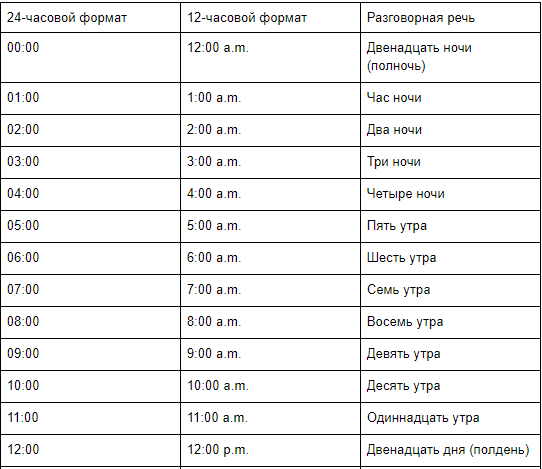
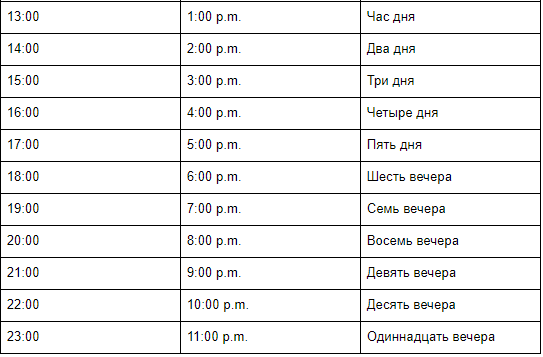
9:00- It is nine am.
5:00- It’s five am.
13:00- It’s one pm.
15:00- It’s three pm.
6:00- It’s six am.
00:00- It’s midnight. / It’s twelve am.
12:00- It’s midday. / It’s twelve pm.
It’s time to…пора
It’s high time to…давно пора
It is time to watch cartoons.
It is high time to go to sleep.
It is 9 pm and your mom says: ”It is high time to have dinner”
7:10 -At ten past seven
7:00- at 7 am
27. 12. 2020 LESSON 17
Beginner ESL Lesson #1 Morning Routine


MY DAY
My every day activities are quite routine/рутина, распорядок/. They do not differ much from/много отличаться от/ those of any other pupil of our country. My working day begins at 7 o’clock in the morning when I get up. I do my physical jerks /физические рывки/, wash, brush my teeth and comb/brush/ my hair. Then I have breakfast. For breakfast I usually have toasted bread, fried eggs, corn flakes /тосты, яичница, кукурузные хлопья/, tea or coffee and some jam.
At ten to eight I leave for /покинуть/ school. I go to school five days a week. It takes me twenty minutes to get to school by bus. At school I usually have six or seven lessons. The lessons are over at two o’clock. I return home /возвращаться домой/ at three o’clock. I have lunch and take a short rest /немного отдохнуть/.I go for a walk with my friends. In spring we play football, in winter we play hockey or ski. I am back at home at a quarter past four. At four thirty I begin to do my home-work. It takes me three hours to do it. On Monday, Wednesday and Friday I attend preparatory /подготовительный/ courses at the University. I leave home at four thirty and come back at eight thirty.
My parents usually return home at seven o’clock. When I am at home we have dinner at seven thirty. After dinner we go to the sitting-room. There we read books, watch TV, chat with the friends on the phone.
At ten o’clock I take a shower /принять душ/, brush my teeth and go to bed. I fall asleep fast and have no dreams /быстро засыпаю и не вижу снов/.
Questions:
When do you get up?
How many lessons do you have every day?
What do you have for dinner?
When do you do your homework?
What do you do in the evening?
ПОЛЕЗНЫЕ ФРАЗЫ:
- to get out of bed — выбираться из постелиto prepare for the day — готовиться ко дню
- to wake up at 7 a.m — проснуться в 7 утра
- to prepare the breakfast oneself — готовить завтрак самому
- to run out of time — не хватать времени
- to head to school — направляться в школу
- to attend the tutor — посещать репетитора
- improve the knowledge of English — улучшать знания английского
- to be good at sth — что-то хорошо получается
- to succeed in the exam — преуспеть на экзамене
- to do running and exercises — бегать и делать упражнения
- to go to bed — идти спать
20. 12. 2020 LESSON 16
Past— после
То— от


What Time is it? What is the time? Could you please tell me what time it is?
Лексика на тему «время» в английском языке
Morning — утро
In the morning — утром
Afternoon — день
In the afternoon — днем
Noon / midday — полдень
Evening — вечер
In the evening — вечером
Tonight — сегодня вечером
At noon / at midday — в полдень
Night — ночь
At night — ночью
Midnight — полночь
At midnight — в полночь
Today — сегодня
Now — сейчас
Yesterday — вчера
Past October — в прошлом октябре
Tomorrow — завтра
Next summer — следующим летом
The day after tomorrow — послезавтра
The day before yesterday — позавчера
In a week — через неделю
Времена года — Seasons
Month — месяц
Spring — весна
May — май
March — март
April — апрель
Summer — лето
June — июнь
July — июль
August — август
Autumn / Fall — осень
September — сентябрь
October — октябрь
November — ноябрь
Winter — зима
December — декабрь
January — январь
February — февраль
Indian summer — бабье лето
Days of the week — дни недели
Monday — понедельник
Tuesday — вторник
Wednesday — среда
Thursday — четверг
Friday — пятница
Saturday — суббота
Sunday — воскресенье
Clock — настенные часы
Alarm clock — будильник
watch — наручные часы
To wind up — заводить
Rush hour — час пик
Minute — минута
Quarter — четверть
Half — половина
Hour — час
At odd hours — на досуге, время от времени
Ahead of time — раньше времени
At a wrong time — не вовремя
Time flies — время летит
Time drags — время тянется
No time to lose — время не ждет (нужно поторопиться)
Time goes by / passes — время проходит
Устойчивые выражения со словом time
doesn’t take a lot of time (не займет много времени).
time is money (время — деньги)
all in good time (всему свое время)
time heals all wounds (время все лечит)
Not the time / hardly the time — не время
It’s not the time to ask my father about a favour – Сейчас не время просить моего отца об одолжении
There’s no time like the present — сейчас самое подходящее время (когда речь идет о чем-то, что нужно сделать прямо сейчас)
When do you want to call him? I think, there’s no time like the present –— Когда ты думаешь позвонить ему? Я думаю, сейчас самое подходящее время.
To have all the time in the world — иметь много времени (дословно: иметь все время в мире)
We don’t have to rush, we have all the time in the world — Нам не нужно спешить, у нас масса времени
To have no / little time to spare — нет / мало свободного времени
Kate had no time to spare for cooking. – У Кейт не было времени на готовку.
With time to spare — раньше, чем ожидалось
We will arrive in Tokyo with time to spare — Мы прибудем в Токио раньше, чем ожидалось.
Have time on your hands — иметь много свободного времени (не знать, чем себя занять)
Now that he started to live alone, he has too much time on his hands — Теперь, когда он живет один, он не знает, чем себя занять
Half the time — почти всегда (дословно: половину времени), употребляется обычно в негативном ключе, как упрек, поэтому при отрицании можно перевести как “почти никогда”.
Half the time you don’t even notice what I’m wearing — Ты почти никогда не замечаешь даже во что я одета
At all times — всегда (обычно употребляется в официальной речи или объявлениях)
Children must be supervised by adults at all times while in the museum — Находясь в музее, дети должны находится под постоянным присмотром взрослых
To take one’s time — не спешить
Here is the menu, sir. I’ll return in ten minutes, so, take your time. — Вот меню, сэр. Я вернусь через десять минут, так что, не спешите.
(Right / bang / dead) on time — вовремя
The taxi arrived right on time — Такси приехало как раз вовремя
Ahead of time — раньше, чем было запланировано
The plane arrived 40 minutes ahead of time — Самолет прибыл на 40 минут раньше
Behind time — позже, чем было запланировано
The plane arrived 20 minutes behind time — Самолет прибыл на 20 минут позже
In no time / in next to no time — очень скоро, быстро
Don’t worry, I’ll be back in next to no time — Не волнуйся, я мигом (Не волнуйся, я скоро вернусь)
To make good time — быстро добраться куда-либо (дословно: сделали хорошее время)
We made good time and were at home by five — Мы довольно быстро добрались и были дома к пяти
To race / work / battle against time — стараться уложиться в срок , хоть у вас и очень мало времени для этого
John was racing against time to complete the project by Monday — Джон изо всех сил старался уложиться в сроки и закончить проект к понедельнику
To kill time — занять время, пока вы ждете чего-либо (дословно: убить время)
We have 2 hours left before the meeting and we need to kill some time — У нас осталось 2 часа до встречи и нам нужно чем-то занять время
| 1 one | 2 two | 3 three | 4 four | 5 five | 6 six | 7 seven | 8 eight | 9 nine | 10 ten |
| 11 eleven | 12 twelve | 13 thirteen | 14 fourteen | 15 fifteen | 16 sixteen | 17 seventeen | 18 eighteen | 19 nineteen | 20 twenty |
| 21 twenty- one | 22 twenty- two | 23 twenty- three | 24 twenty- four | 25 twenty- five | 26 twenty- six | 27 twenty- seven | 28 twenty- eight | 29 twenty- nine | 30 thirty |
| 31 thirty- one | 32 thirty- two | 33 thirty- three | 34 thirty- four | 35 thirty- five | 36 thirty- six | 37 thirty- seven | 38 thirty- eight | 39 thirty- nine | 40 forty |
| 41 forty- one | 42 forty- two | 43 forty- three | 44 forty- four | 45 forty- five | 46 forty- six | 47 forty- seven | 48 forty- eight | 49 forty- nine | 50 fifty |
| 51 fifty- one | 52 fifty- two | 53 fifty- three | 54 fifty- four | 55 fifty- five | 56 fifty- six | 57 fifty- seven | 58 fifty- eight | 59 fifty- nine | 60 sixty |
| 61 sixty- one | 62 sixty- two | 63 sixty- three | 64 sixty- four | 65 sixty- five | 66 sixty- six | 67 sixty- seven | 68 sixty- eight | 69 sixty- nine | 70 seventy |
| 71 seventy- one | 72 seventy- two | 73 seventy- three | 74 seventy- four | 75 seventy- five | 76 seventy- six | 77 seventy- seven | 78 seventy- eight | 79 seventy- nine | 80 eighty |
| 81 eighty- one | 82 eighty- two | 83 eighty- three | 84 eighty- four | 85 eighty- five | 86 eighty- six | 87 eighty- seven | 88 eighty- eight | 89 eighty- nine | 90 ninety |
| 91 ninety- one | 92 ninety- two | 93 ninety- three | 94 ninety- four | 95 ninety- five | 96 ninety- six | 97 ninety- seven | 98 ninety- eight | 99 ninety- nine | 100 one hundred |

Table of Cardinal Numbers
| Cardinal numbers from 1 through 1,000,000 | |||||||
| 1 | one | 11 | eleven | 21 | twenty-one | 31 | thirty-one |
| 2 | two | 12 | twelve | 22 | twenty-two | 40 | forty |
| 3 | three | 13 | thirteen | 23 | twenty-three | 50 | fifty |
| 4 | four | 14 | fourteen | 24 | twenty-four | 60 | sixty |
| 5 | five | 15 | fifteen | 25 | twenty-five | 70 | seventy |
| 6 | six | 16 | sixteen | 26 | twenty-six | 80 | eighty |
| 7 | seven | 17 | seventeen | 27 | twenty-seven | 90 | ninety |
| 8 | eight | 18 | eighteen | 28 | twenty-eight | 100 | a/one hundred |
| 9 | nine | 19 | nineteen | 29 | twenty-nine | 1,000 | a/one thousand |
| 10 | ten | 20 | twenty | 30 | thirty | 1,000,000 | a/one million |
1,000,000,000,000 a trillion
Separation between hundreds and tens
Hundreds and tens are usually separated by ‘and’ (in American English ‘and’ is not necessary).
110 — one hundred and ten
1,250 — one thousand, two hundred and fifty
2,001 — two thousand and one
Hundreds
Use 100 always with ‘a’ or ‘one’.
100 — a hundred / one hundred
‘a’ can only stand at the beginning of a number.
100 — a hundred / one hundred
2,100 — two thousand, one hundred
Thousands and Millions
Use 1,000 and 1,000,000 always with ‘a’ or ‘one’.
1,000 — a thousand / one thousand
201,000 — two hundred and one thousand
Use commas as a separator.
57,458,302
Singular or Plural?
Numbers are usually written in singular.
two hundred Euros
several thousand light years
The plural is only used with dozen, hundred, thousand, million, billion, if they are not modified by another number or expression (e.g. a few / several).
hundreds of Euros
thousands of light years
15. 12. 2020 LESSON 15
The Little Red Hen Рыжая курочка и пшеничные Зернышки— прослушать много раз, читать, рассказывать
ROUND-UP 1 ex-es 64-79, ex. 67, 69, 73, 78 in written form
Signal words/ написать в тетради и выучить
Present Continuous используется с определенными словами и фразами, которые указывают на определенный, известный момент времени, в который происходит действие.
- now – сейчас
- right now – прямо сейчас
- still – всё ещё
- currently – теперь
- at the moment – в этот момент
- at present – в настоящее время
- this morning – этим утром
- this evening – этим вечером
- this afternoon – сегодня после обеда
- today – сегодня (днём)
- tonight – сегодня (вечером)
- these days – на днях
- nowadays – в наши дни
11. 12. 2020 LESSON 14
Времена в английском языке. Таблица английских времен.
Как известно, в русском языке три времени – прошедшее, настоящее и будущее. Английских времен тоже три – present, past и future, но в зависимости от того, является ли действие завершенным или длительным, каждое из этих времен может быть четырех типов – simple, continuous, perfect и perfect continuous. В результате в английском языке можно получить 12 временных форм.
Таблица английских времен:
| Simple / Indefinite | Continuous / Progressive | Perfect | Perfect Continuous | |
| Present | I play | I am playing | I have played | I have been playing |
| Past | I played | I was playing | I had played | I had been playing |
| Future | I will play | I will be playing | I will have played | I will have been playing |
Времена группы Continuous указывают на процесс, действие, длящееся в определенный момент в прошлом, настоящем или будущем.
Время Present Continuous или Настоящее Длительное относится к группе настоящих времен в английском языке, которое описывает длительное, продолжающееся какое-то время действие. Образуется оно с помощью двух глаголов. Первый – вспомогательный глагол to be, который изменяется по лицам и числам. Второй – это основной глагол с неизменным окончанием –ing, который и несёт главный смысл:
Ex.: Sally is doing her homework at the moment.
Салли сейчас делает домашнее задание.
The sun is shining brightly in the sky. Солнце светит ярко в небе.
У каждой временной формы есть свои слова-спутники. Различные наречия времени, предлоги – вспомогательные сигналы, подчеркивающие особенности времени и тем самым указывающие, что перед нами то или иное время. Время Present Continuous не относится к исключениям. У него есть свой целый штат помощников.
Большая часть сигнальных слов Present Continuous направлены на то, чтобы подчеркнуть продолжительность действия, и указывают на то, что описываемое событие происходит в данный момент.
Слова-указатели Present Continuous
| Слова-маркерыPresent Continuous | Примеры |
| Now (сейчас), right now (прямо сейчас) | Tom is translating a sentence from Russian into English now – Том переводит предложение с русского на английский язык сейчас. |
| At this moment (в данный момент, в настоящий момент, в данную минуту) | At this moment two close friends are waiting for the train at the railway station – В настоящий момент два близких друга ожидают поезд на вокзале. |
| Still (ещё, всё ещё, до сих пор) | My mother is still protecting and looking after me – Моя мама до сих пор защищает меня и присматривает за мной. |
| At present (в настоящее время, на сегодняшний день) | The weather is changing rapidly at present – Погода быстро меняется в настоящее время. |
| Today (сегодня) | Today our dreams are coming true – Сегодня наши мечты исполняются. |
| Tonight (сегодня вечером) | It is a pity, but we are working tonight – Жаль, но сегодня вечером мы работаем. |
| Currently (теперь, сейчас, в настоящее время, ныне) | A famous writer is currently creating a new novel abroad – Известный писатель в настоящее время создает новый роман за границей. |
Такие слова, как today (сегодня), tomorrow(завтра), this/next year (в этом/следующем году), tonight (вечером), так же могут быть маркерами времени Present Continuous и тем самым обращать внимание на ещё одну функцию времени – указание на ближайшее будущее.


Vereshchagina 2 Student’s Book/ Part 2 (2008) стр. 25-36 Тhe Little Red Hen (часть 1,2,3), нажми здесь и послушай несколько раз!
Shapes and Figures watch here выучить наизусть
Dictation

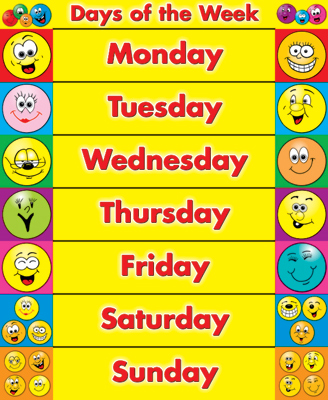
9. 12. 2020 Lesson 13,
Spotlight 3 Student’s Book стр. 14- 24 читать, переводить, отв. на вопросы, выучить наизусть The Toy Soldier стр. 18-19
Imperative- из ROUND-UP 1 3 упр.
Let’s go to the beach, shall we? не так ли?
Составить 5 предлож. о расписании школьных предметов, напр. I have English, Math, P.E and Science on Wednesday.
Нажми на Tricky words , напиши перевод и транскрипцию следующих слов с помощью словаря Cambridge Dictionary:

The Little Red Hen Рыжая курочка и пшеничные Зернышки— прослушать много раз, читать, выписать незнакомые слова, рассказывать
School Subjects/ Школьные предметы
My Timetable
| Monday | Tuesday | Wednesday | Thursday | Friday |
| Math/English | Math/ Mathematics | Armenian | Armenian | Music |
| Technology | English/Armenian | P.E. – Physical Education | Chess | Russian/Armenian |
| Swimming | Drawing | Math/ Mathematics | Math/ Mathematics | English/Russian |
| Music | Me and my surroundings/ Nature Study | Armenian | English/Math | P.E. – Physical Education |
| Russian | Technology | Drawing | Handicraft |
- What day is it today?
- It is Friday.
- What school subjects have you got on Monday?
- I have got English, math, technology, P.E. and Russian.
- Eva has got math, technology, P.E., Armenian and music.
- Ashot has got swimming after school on Tuesday.
- Maria has got a piano lesson after school (դասերից, դպրոցից հետո) on Wednesday.
- What is your favourite subject?
- I love math.
- My favourite (սիրելի) subject is English.
- I like P.E.
6,12,2020 Lesson 12
Нажми на Tricky words , напиши перевод и транскрипцию следующих слов с помощью словаря Cambridge Dictionary:

The Very Hungry Caterpillar
2. 11. 2020 LESSON 11
- cocoon- բոժոժ, кокон
- caterpillar- թրթուր, гусеница
- pickle- թթու դրած բանջարեղեն, маринованный огурец
- pickles- соленья
- more than 2 weeks- ավելի քան 2 շաբաթ, более двух недель
Read The very hungry caterpillar
Սեղմի՛ր այստեղ և կատարի՛ր ինքնաստուգումները մի քանի անգամ դիտելուց հետո:
29.10.2020 LESSON 11


25.10.2020 LESSON 10
Prepositions of place, ex-es 117, 118, 119, Writing activity 8



22.10.2020 LESSON 9
Prepositions of place: IN, ON, AT, BEHIND
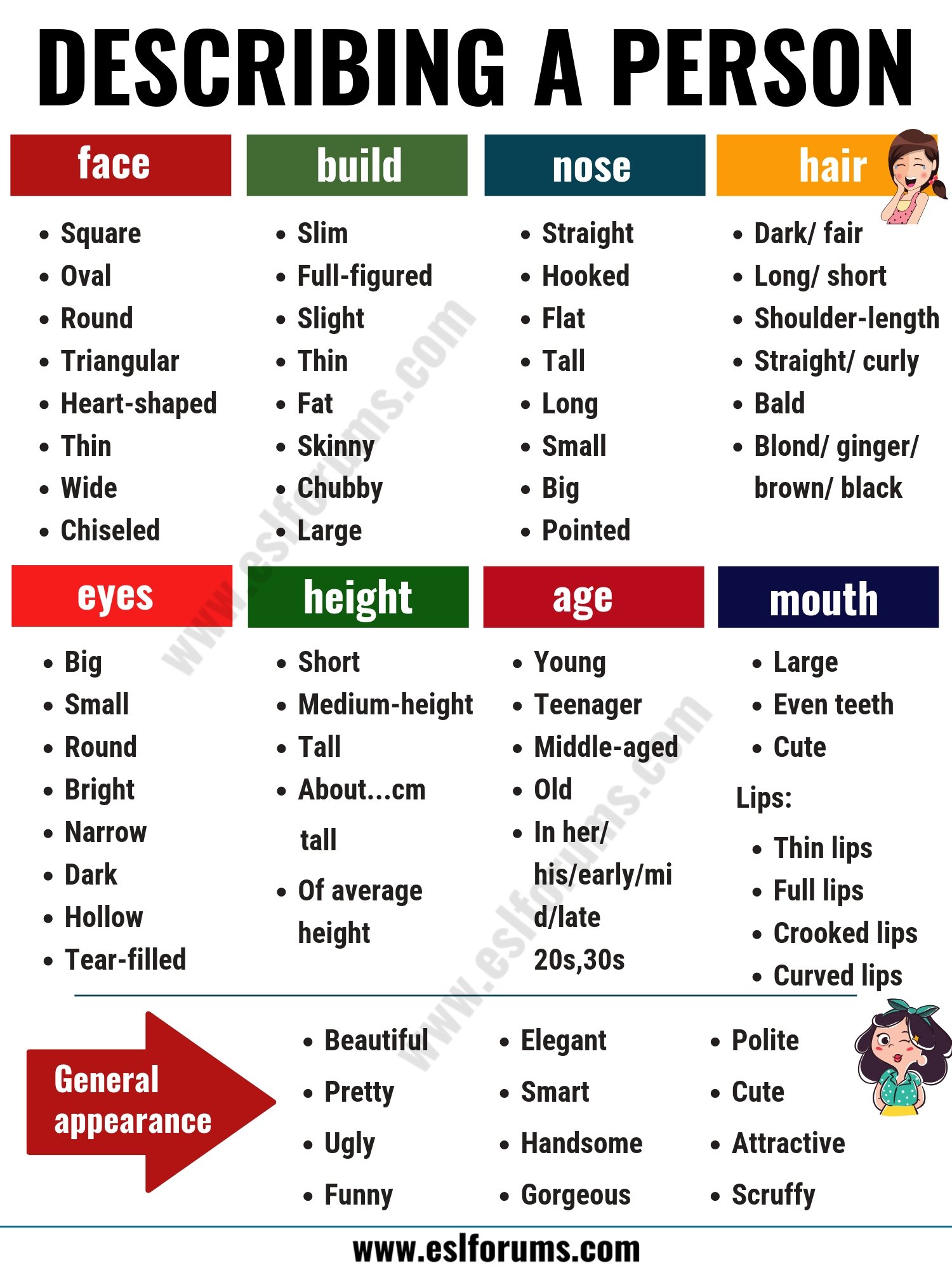
18.10.2020 LESSON 8

ROUND-UP 1 p. 25 ex. 35-38(Have got/ has got)
Let’s play who is who! 2. 3. 4.
School Supplies/ Школьные принадлежности. Classroom objects picture vocabulary with pronunciations выучить все слова наизусть, составить диалог по примеру:
Sona: Give me an eraser, please.
Kostya: Here you are.
Sona: Thank you very much.
Online crossword across— горизонтально, down— вертикально
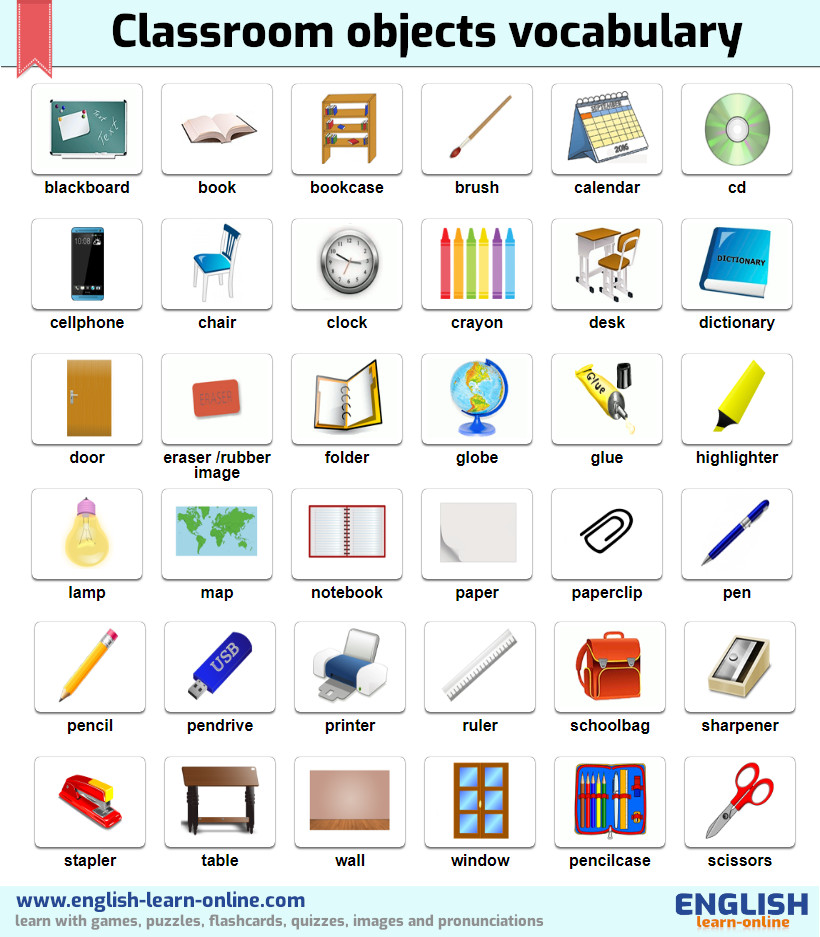
15.10.2020 LESSON 7
- ROUND-UP 1 p. 23 ex. 33
Нажми и делай задания к тексту письменно An activity for the song
Learn all these words by heart:
- Kitchen-кухня
- Hippo-бегемот
- Hall-зал
- Dining room-столовая
- Hundred-100
- Tall-высокий
- Full of-полон, набитый
- Go crazy-сходить с ума
- Live-жить
- Beetle-жук
- Bathroom-ванная комната
- Tortoise=turtle-черепаха
- Gopher-суслик
- Garden-сад
- Living room-гостиная
7.10.2020 LESSON 6
ROUND-UP 1 There is /There are (p.22)
Usage Of This, That, These, Those | English | Grade-1,2
Translate these sentences into English.
- То – тетради. Те тетради – в сумке. Those are copy-books. Those copy-books are in the bag.
- Этот мальчик – мой брат.
- Это – моя мама. Эта женщина – моя мама.
- Тот карандаш – плохой. Возьмите этот карандаш.
- Это интересный фильм. Мне нравится этот фильм.
- То – ручка. Та ручка – красная.
- Это большой город.
- Это не моя проблема.
- Это – книги? Нет, это не книги.
- Это – сумка. Это моя сумка.
- Это большой город?
- Этот мальчик – студент?
- Та девочка – твоя сестра?
- Это не книги, это – журналы.
- Это ваши дети? Нет, это не мои дети.
- Это – книга. Эта книга – интересная.
3.11.2020 LESSON 5
An activity for the story (задания к тексту)

- What are you doing- что ты делаешь?
- Charity- благотворительность
- Wait- ждать
- They still fit me- они все еще подходят мне
- Look- смотреть
- Knit- вязать
- Slippers
- Though- хотя
- Buy (bought)- купить
- Still- пока что, еще
- Get (got)- получить
- Grow- расти
- So much- так много, настолько
- On the way- в пути, по дороге
- Find (found)- найти (нашел)
- Someone- кто-то
- Needed- нуждался
- I need your help- Я нуждаюсь….
29.10.2020 LESSON 4
My Favourite Clothes— разбирать текст
Word Game 3 Clothes — accessories
27.10.2020 LESSON 3
Homework ROUND-UP 1 p. 15-18 ex. 20-27 in written form(письменно)

My Favourite Clothes (моя любимая одежда) watch this story several times (посмотреть несколько раз)
24.10.2020 LESSON 2
Topic: About myself
Let me inroduce myself. My full name is Konstantin Arsenovich Bagyan. I was born on January, 20, 2010 in Moscow. I come from the family of office workers. I have got a family of 5. I am a pupil of the forth form of a secondary school.
My name is … I am ten. I live in Moscow. My address is … My telephone number is…
I am of middle height. I am not very thin. My face is oval. I have a dark complexion. My forehead is broad. I have a straight nose and a round chin. My eyebrows are bushy, my eyelashes are thick and long. I have large hazel eyes. My hair is black, straight and not very long.
I live with my family. It is large. We love each other very much and always try to help each other and to spend as much time together as we can. I have a lot of friends too.
I am fond of reading and playing mobile games. My favourite sports are basketball and chess. My friends and I often get together to play different games or just go for a walk.
I am very happy with my family.
20.10.2020 Lesson 1
Grammar: English vowels and consonants, a-an, plurals. (выучить все правила, исключения наизусть)
Lexics: Theme 1: Greeting
Round-up 1- p.7, ex.5,6 in written form (письменно)
1. Онлайн тест на множестенное число существительных
2. Онлайн тест на множестенное число существительных
Listening for vowels and consonants
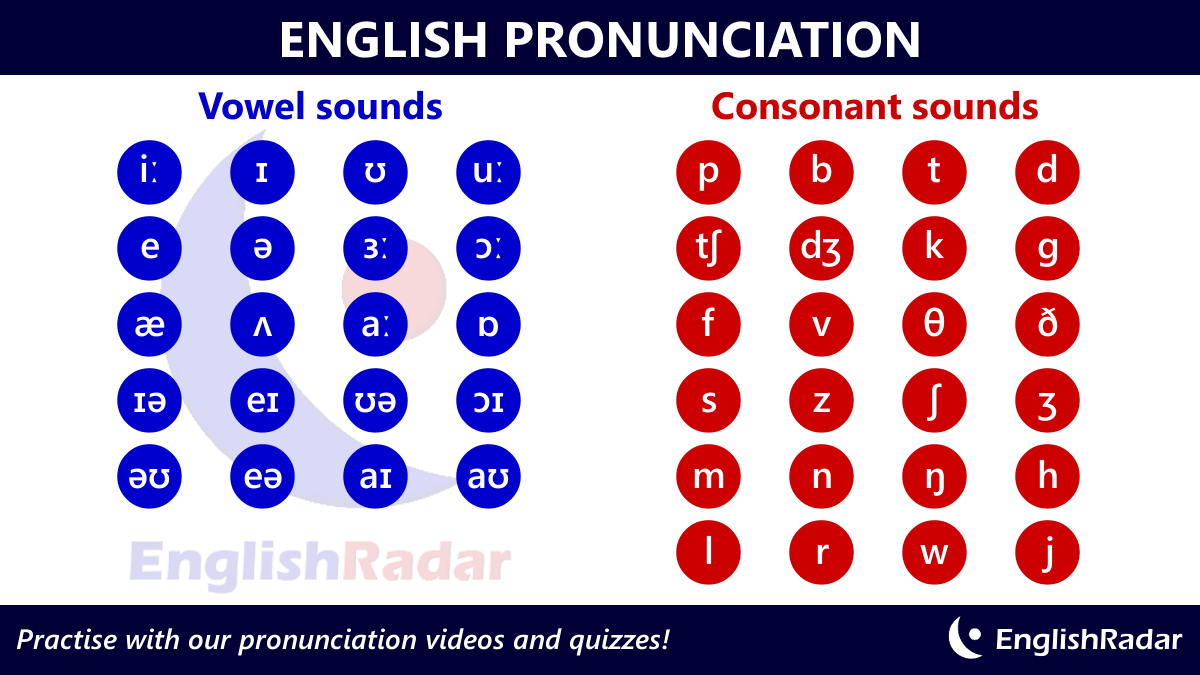

Hello! I am Kostya Baghyan. I am a fourth-grade student.
I am very attractive and good-looking. Ես շատ գրավիչ ու գեղեցիկ եմ: привлекательный и красивый
I am pretty. Ես գեղեցիկ եմ:
I am handsome. Ես վայելչակազմ եմ: красивый, стсный
I am thin. Նիհար եմ:
I am a bit overweight. Ես մի փոքր ծանրաքարշ եմ:
I am fat. Ես գեր եմ:
I am athletic/ muscular. Ես աթլետիկ/ մկանոտ մարմին ունեմ:
I am slim/ slender. Ես նրբիրան եմ: худенький, стройный
I am tall. Ես բարձրահասակ եմ:
I am short. Ես ցածրահասակ եմ:
I have got (I’ve got) bald— ճաղատ, лысый/ short— կարճ, короткие/ long— երկար/ shoulder length— մինչ ուսերը, длиной до плеч straight— ուղիղ, прямые/ curly— գանգուր, кудрявые/ wavy— ալիքաձև, волнистые blonde— շեկ/ brown/ fair/ orange/ dark hair.
I have got light— բաց, светлый / dark— մուգ, темный blue/ green/ brown eyes. They are round (կլոր, круглый)/ almond (նշաձև, миндальный)
I have a small/ big nose and mouth, small ears.
I have got a round face. Ես կլորադեմ եմ:
I have got a square (քառակուսի) face.
I have got an oval (օվալաձև) face.
I have got a triangular (եռանկյունաձև) face.
Կարդա՛ և համապատասխանեցրու՛
Ըստ նկարագրի համապատասխանեցրու՛ բառերը
Սեղմի՛ր և կատարի՛ր ինքնաստուգումը: Քո հերոսներն են Tarzan, Witch/ վհուկ, Superman and Supergirl.
Սեղմի՛ր և խաղա՛ ուսուցողական խաղը՝ կազմելով նախադսաություններ:
